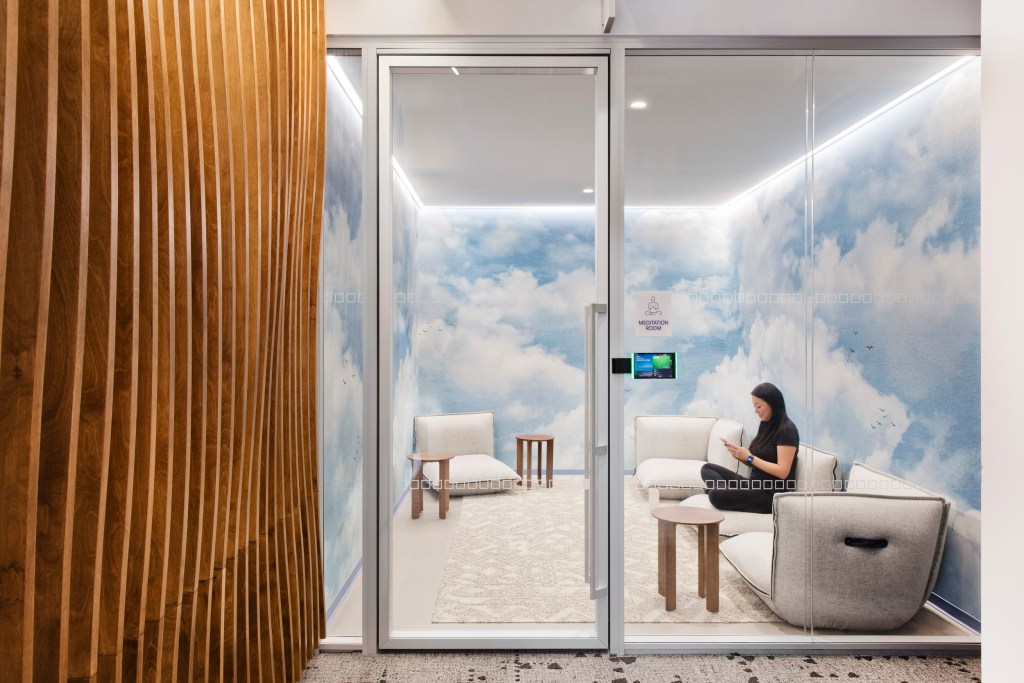More offices get design makeovers to boost staff wellness and inclusivity

Companies are reconfiguring their office spaces to better cater to a range of staff well-being needs — like the need to unplug, take a real break and do something for themselves during the workday.
While outdoor spaces and rooftops can be great, more companies are turning to on-site meditation and prayer rooms where they can take that time for calming spiritual and religious practices. Some tech companies and large corporations had them pre-pandemic, but smaller and mid-size companies too are now looking at incorporating them, experts say.
“Really this notion of wellness and well-being and belonging is influencing how offices are being designed, and how people are really thinking of bringing back their teams and also inviting them to stay,” said Enrique Sánchez, principal at STUDIOS Architecture.
Meditation rooms are typically adjacent to other wellness accommodations like lactation rooms in offices, said Carlos Martínez, managing director and a workplace design leader at Gensler. They can be shared or private spaces, and some buildings will have lactation rooms and meditations rooms alternating on different floors.
Meditation in the workplace exploded during the pandemic through companies offering virtual sessions and as they looked to support struggling staff. Corporate meditation sessions again are seeing boosted interest with the return to offices and more people adopting the practice in their daily lives.
“People are starting to get better support for mental health, and one of the things they do is teach through meditation, so companies now do provide spaces for that to allow people to have a place to do that,” said Steven South, design director at Spectorgroup.
Prayers rooms are typically non denominational, intended to cater to staff of all faiths and their spiritual traditions. Building those in offices can be more of a lift as they often require plumbing changes and certain fixtures like basins where people can wash their feet. They also must be large enough to pray on mats and have benches to comfortably sit on, and are often softly-lit.
“Not everybody prays, but other people might also have a time where they want to sort of have time to themselves which could be meditation,” Martínez said.

“We have to allow people a place where they feel comfortable and that they can take care of themselves. I feel like this notion of acknowledging the fact that the workplace has to be a healthy environment at all levels, the meditation room is a manifestation of that,” he said.
Ultimately, private spaces in offices, like meditation rooms, can cater to a host of employee needs. For instance if someone has anxiety or is neurodivergent and wants to get away from all the stimuli in an office environment, those spaces can provide that, South said. Employers with a large veteran population among their workforce for instance also may need to provide meditative spaces for those staff to decompress during the day, he said.
“It’s about diversity and inclusivity, and providing a space in the workplace for that. I think that sends a strong message to employees if they’re working at a company that their workplace provides that support,” South said.
“It’s an easy thing to provide without a lot of added cost to the client, but it gives their employees an added benefit,” he added.
